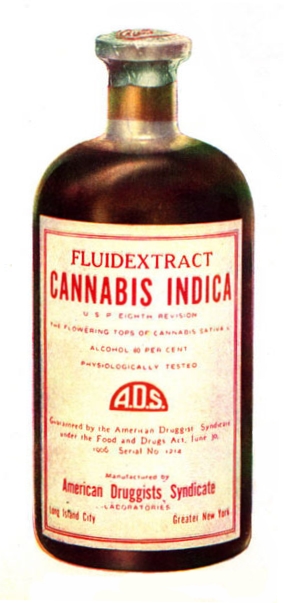Medical cannabis
(Redirected from Medical marijuana)
Medical use of cannabis and its derivatives
| Cannabis |
|---|
|
|


Medical cannabis, also known as medicinal cannabis or medical marijuana (MMJ), refers to the use of the cannabis plant and its cannabinoid compounds for therapeutic or symptomatic treatment. It is prescribed for managing various conditions, though clinical research is still ongoing to assess its safety and efficacy. Due to legal restrictions, research into medical cannabis has historically been limited, resulting in varying levels of regulation and availability across different countries.
Medical Applications
Preliminary studies suggest that medical cannabis may help with conditions such as chronic pain, nausea related to chemotherapy, and muscle spasticity in multiple sclerosis. Some research also explores its potential role in neurological disorders, mental health conditions, and pain management.
Chronic Pain
Cannabinoids, including tetrahydrocannabinol (THC) and cannabidiol (CBD), interact with the endocannabinoid system, which plays a role in pain modulation. Some studies indicate that medical cannabis may provide relief for neuropathic pain, fibromyalgia, and rheumatic diseases. However, long-term effects and optimal dosages remain uncertain.
Chemotherapy-Induced Nausea and Vomiting
Medical cannabis has been used to alleviate chemotherapy-induced nausea and vomiting (CINV). It has been found to be an alternative to traditional antiemetic medications for patients who do not respond well to standard treatments.
Muscle Spasms and Spasticity
In multiple sclerosis, cannabis-based treatments have shown promise in reducing spasticity and muscle spasms, leading to improved mobility and quality of life. Some prescription drugs derived from cannabis, such as nabiximols, are approved for this use in specific regions.
Neurological and Psychiatric Conditions
Research on cannabis-based therapies for epilepsy, Parkinson’s disease, and Alzheimer’s disease is ongoing. The U.S. Food and Drug Administration (FDA) has approved a CBD-based medication, Epidiolex, for treating Lennox-Gastaut syndrome and Dravet syndrome in children. Studies also explore cannabis' effects on anxiety disorders, depression, and post-traumatic stress disorder.
Adverse Effects
The use of medical cannabis can result in both short-term and long-term effects.
Short-Term Effects
Common side effects include:
- Dizziness
- Drowsiness
- Increased appetite
- Cognitive impairment
- Hallucinations in high doses
Long-Term Effects
Prolonged use may be associated with:
- Memory loss
- Cannabis dependence
- Increased risk of psychosis, particularly in individuals predisposed to schizophrenia
- Cannabinoid hyperemesis syndrome, a condition characterized by recurrent nausea and vomiting
Administration Methods
Medical cannabis can be consumed in different forms, each with unique effects on absorption and bioavailability.
- Inhalation – Includes cannabis smoking and vaporization. It provides rapid onset of effects but may have respiratory risks.
- Oral administration – Consists of capsules, tinctures, and cannabis edibles. Effects take longer to manifest but last longer.
- Sublingual administration – Cannabis oils and oromucosal sprays are absorbed through the mucous membranes.
- Topical application – Cannabis-infused topicals, such as creams and transdermal patches, are used for localized relief.
- Suppository administration – Used for patients unable to take cannabis orally.
Legal Status
The legality of cannabis for medical use varies across the world. Some countries allow it under strict regulations, while others impose significant restrictions or outright bans.
International Status
Countries that have legalized medical cannabis include Canada, Germany, Australia, Israel, and several European Union nations. In Latin America, countries such as Argentina, Chile, and Mexico have established medical cannabis programs.
United States
In the United States, medical cannabis is legal in 38 U.S. states and the District of Columbia, but remains a Schedule I controlled substance under federal law. The Rohrabacher–Farr amendment prevents federal intervention in states where medical cannabis is legal.
United Kingdom
In the United Kingdom, cannabis-based medicines, including Sativex and Epidiolex, are available by prescription for specific conditions.
Other Countries
Some nations, including Japan, Singapore, and the United Arab Emirates, maintain strict bans on medical cannabis. Others permit limited access through special research programs or compassionate use laws.
Pharmacology
The cannabis plant contains over 100 different cannabinoids, with THC and CBD being the most studied. These compounds interact with the endocannabinoid system, which influences various physiological functions.
Cannabinoids
- Tetrahydrocannabinol (THC) – The primary psychoactive compound, responsible for the "high" effect.
- Cannabidiol (CBD) – Non-psychoactive, with potential anti-inflammatory and neuroprotective properties.
- Cannabigerol (CBG) – A precursor to THC and CBD, being studied for its potential medical applications.
- Cannabinol (CBN) – A byproduct of THC degradation, with mild sedative effects.
Absorption and Metabolism
The bioavailability of cannabinoids depends on the route of administration. Inhaled cannabis reaches peak concentrations within minutes, while oral cannabis undergoes extensive first-pass metabolism in the liver, leading to slower but prolonged effects.
History
Cannabis has been used medicinally for thousands of years.
Ancient Use
- The Ebers Papyrus from Ancient Egypt (circa 1550 BCE) describes cannabis as a treatment for inflammation.
- In China, Shen-Nung documented its therapeutic use around 2700 BCE.
- Greek medicine used cannabis to treat wounds and pain.
Modern History
- In the 19th century, cannabis was introduced to Western medicine by William Brooke O'Shaughnessy, an Irish physician.
- The 20th century saw increasing restrictions, culminating in the Marihuana Tax Act of 1937 in the United States.
- The 1970 Controlled Substances Act classified cannabis as a Schedule I drug, restricting research.
- In 1996, California became the first U.S. state to legalize medical cannabis with Proposition 215.
- Canada became the first country to legalize medical cannabis nationwide in 2001.
Society and Culture
Public attitudes toward medical cannabis have shifted significantly in recent years, with growing support for its therapeutic applications. Various medical organizations, including the American Nurses Association and the American Academy of Family Physicians, support rescheduling cannabis to allow further research.
Future Research
Despite growing acceptance, medical cannabis research faces challenges due to legal barriers and variability in cannabis-based treatments. Ongoing studies aim to clarify its role in managing pain, neurological disorders, and mental health conditions.
| Cannabis | ||||||||||||||
|---|---|---|---|---|---|---|---|---|---|---|---|---|---|---|
*
|
Transform your life with W8MD's budget GLP-1 injections from $125.
W8MD offers a medical weight loss program to lose weight in Philadelphia. Our physician-supervised medical weight loss provides:
- Most insurances accepted or discounted self-pay rates. We will obtain insurance prior authorizations if needed.
- Generic GLP1 weight loss injections from $125 for the starting dose.
- Also offer prescription weight loss medications including Phentermine, Qsymia, Diethylpropion, Contrave etc.
NYC weight loss doctor appointments
Start your NYC weight loss journey today at our NYC medical weight loss and Philadelphia medical weight loss clinics.
- Call 718-946-5500 to lose weight in NYC or for medical weight loss in Philadelphia 215-676-2334.
- Tags:NYC medical weight loss, Philadelphia lose weight Zepbound NYC, Budget GLP1 weight loss injections, Wegovy Philadelphia, Wegovy NYC, Philadelphia medical weight loss, Brookly weight loss and Wegovy NYC
|
WikiMD's Wellness Encyclopedia |
| Let Food Be Thy Medicine Medicine Thy Food - Hippocrates |
Medical Disclaimer: WikiMD is not a substitute for professional medical advice. The information on WikiMD is provided as an information resource only, may be incorrect, outdated or misleading, and is not to be used or relied on for any diagnostic or treatment purposes. Please consult your health care provider before making any healthcare decisions or for guidance about a specific medical condition. WikiMD expressly disclaims responsibility, and shall have no liability, for any damages, loss, injury, or liability whatsoever suffered as a result of your reliance on the information contained in this site. By visiting this site you agree to the foregoing terms and conditions, which may from time to time be changed or supplemented by WikiMD. If you do not agree to the foregoing terms and conditions, you should not enter or use this site. See full disclaimer.
Credits:Most images are courtesy of Wikimedia commons, and templates, categories Wikipedia, licensed under CC BY SA or similar.
- Pages with script errors
- Use American English from March 2025
- Articles with invalid date parameter in template
- All Wikipedia articles written in American English
- Medicinal use of cannabis
- Antiemetics
- Antioxidants
- Biologically based therapies
- Herbalism
- Medical ethics
- Medicinal plants
- Pharmaceuticals policy
- Pharmacognosy
Contributors: Prab R. Tumpati, MD










